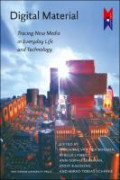
Digital material :tracing new media in everyday life and technology
Three decades of societal and cultural alignment of new media have yielded a host of innovations, trials, and problems, accompanied by versatile popular and academic discourse. New Media Studies cr…
- Edisi
- -
- ISBN/ISSN
- 9789089640680
- Deskripsi Fisik
- 303 p.
- Judul Seri
- -
- No. Panggil
- 070.4 DIG d
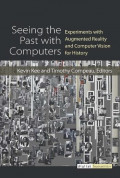
Seeing the past with computers :experiments with augmented reality and comput…
Recent developments in computer technology are providing historians with new ways to see—and seek to hear, touch, or smell—traces of the past. Place-based augmented reality applications are an …
- Edisi
- -
- ISBN/ISSN
- 9780472131112
- Deskripsi Fisik
- vi, 247p. : ill.
- Judul Seri
- -
- No. Panggil
- 001.30285 SEE s
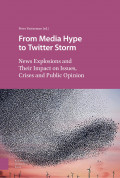
From media hype to Twitter storm :the dynamics of self reinforcing processes …
The word media hype is often used as rhetorical argument to dismiss waves of media attention as overblown, disproportional and exaggerated. But these explosive news waves, as well as - nowadays - t…
- Edisi
- -
- ISBN/ISSN
- 9789048532100
- Deskripsi Fisik
- 401p. : ill.
- Judul Seri
- -
- No. Panggil
- 070.4 FRO f
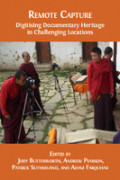
Remote capture :digitising documentary heritage in challenging locations
This is a must-read how-to guide if you are planning to embark on a scholarly digitisation project. Tailored to the specifications of the British Library’s EAP (Endangered Archives Programme) pro…
- Edisi
- -
- ISBN/ISSN
- 9781783744756
- Deskripsi Fisik
- 181 p.
- Judul Seri
- -
- No. Panggil
- 025.84 REM r
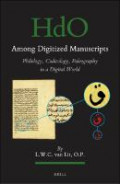
Among digitized manuscripts :philology, codicology, paleography in a digital …
If you work with digital photos of manuscripts or archival materials, Among Digitized Manuscripts provides the conceptual and practical toolbox for you to create a state-of-the-art methodology and …
- Edisi
- -
- ISBN/ISSN
- 9789004400351
- Deskripsi Fisik
- XI, 333 p.
- Judul Seri
- -
- No. Panggil
- 091.0285 VAN a
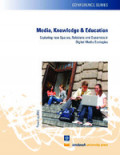
Media, knowledge & education :exploring new spaces, relations and dynamics in…
In recent years, new and established media have penetrated, challenged, and often surpassed in significance traditional institutions of socialization and education. Moreover, the social organizatio…
- Edisi
- -
- ISBN/ISSN
- 9783902571670
- Deskripsi Fisik
- 319 p.
- Judul Seri
- -
- No. Panggil
- 025.5 HUG m
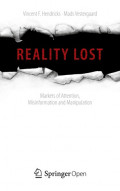
Reality lost :markets of attention, misinformation and manipulation
This open access book looks at how a democracy can devolve into a post-factual state. The media is being flooded by populist narratives, fake news, conspiracy theories and make-believe. Misinfor…
- Edisi
- -
- ISBN/ISSN
- 9783030008130
- Deskripsi Fisik
- xxi, 144p. : ill.
- Judul Seri
- -
- No. Panggil
- 070.43 HEN r
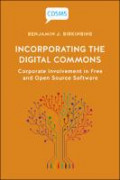
Incorporating the digital commons corporate involvement in free and open sour…
The concept of ‘the commons’ has been used as a framework to understand resources shared by a community rather than a private entity, and it has also inspired social movements working against t…
- Edisi
- -
- ISBN/ISSN
- 9781912656431
- Deskripsi Fisik
- xiv, 143p.: ill.
- Judul Seri
- -
- No. Panggil
- 005.8 BIR i
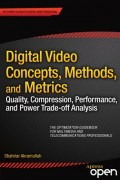
Digital video concepts, methods, and metrics :quality, compression, performan…
Digital Video Concepts, Methods, and Metrics: Quality, Compression, Performance, and Power Trade-off Analysis is a concise reference for professionals in a wide range of applications and vocations.…
- Edisi
- -
- ISBN/ISSN
- 9781430267133
- Deskripsi Fisik
- xvii, 368p. : ill.
- Judul Seri
- -
- No. Panggil
- 006.696 AKR d
What is digital journalism studies?
What is Digital Journalism Studies? delves into the technologies, platforms, and audience relations that constitute digital journalism studies’ central objects of study, outlining its principal t…
- Edisi
- -
- ISBN/ISSN
- 9780429259555
- Deskripsi Fisik
- xii, 124p.: ill.
- Judul Seri
- -
- No. Panggil
- 070.1 STE w

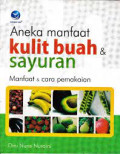

 Karya Umum
Karya Umum  Filsafat
Filsafat  Agama
Agama  Ilmu-ilmu Sosial
Ilmu-ilmu Sosial  Bahasa
Bahasa  Ilmu-ilmu Murni
Ilmu-ilmu Murni  Ilmu-ilmu Terapan
Ilmu-ilmu Terapan  Kesenian, Hiburan, dan Olahraga
Kesenian, Hiburan, dan Olahraga  Kesusastraan
Kesusastraan  Geografi dan Sejarah
Geografi dan Sejarah